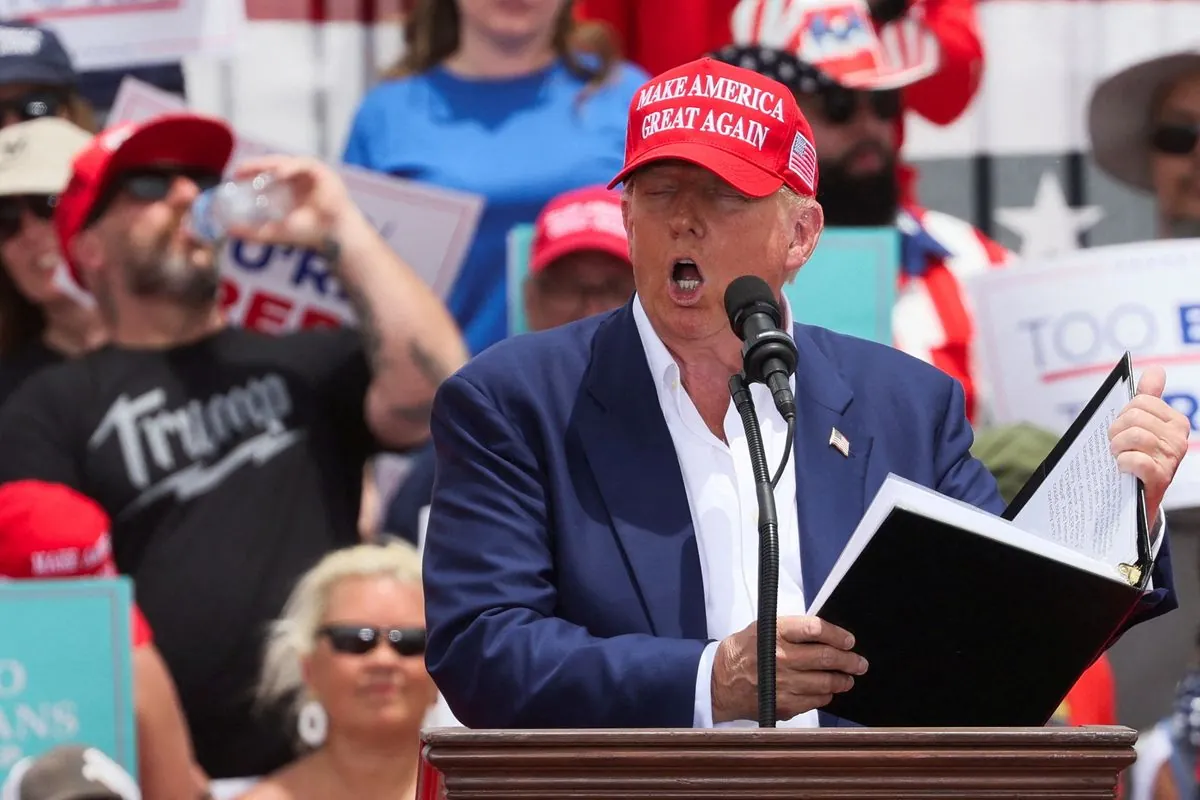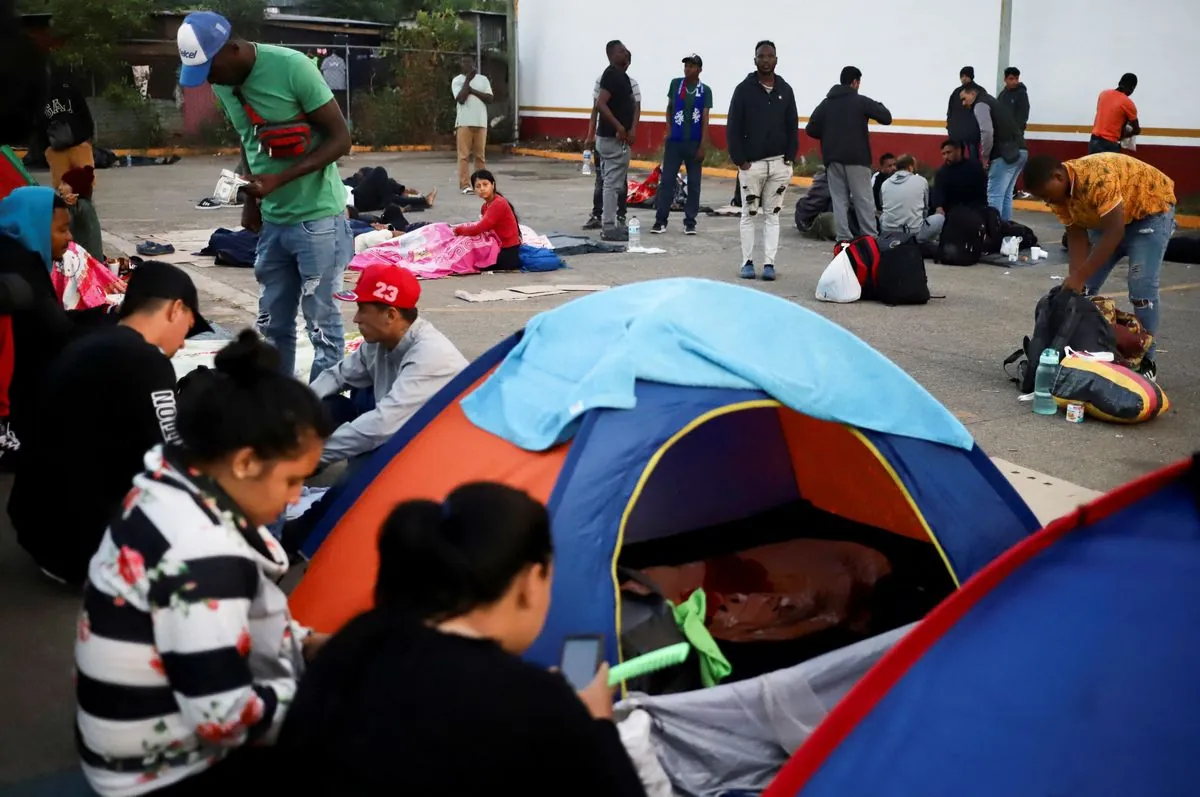Trump Vows to Deport Migrants Admitted Under Biden Programs if Re-elected
Former President Trump pledges to remove over 1 million immigrants admitted through Biden administration programs. His plan faces potential legal and logistical challenges, echoing previous unfulfilled deportation promises.

Donald Trump, the former U.S. president, has announced his intention to deport hundreds of thousands of immigrants who entered the country under two key Biden administration programs if he is re-elected. This declaration aligns with Trump's ongoing anti-immigration rhetoric, which has been a central theme of his campaign.
The two programs in question were implemented by the Biden administration to manage migration flows and reduce chaos at the southern border. The first program, launched in January 2023, utilizes a smartphone app called CBP One, allowing migrants to schedule asylum appointments at official U.S. border crossings. Since its inception, approximately 813,000 individuals have used this system.
The second program, introduced in 2023, permits 30,000 people monthly from Cuba, Haiti, Nicaragua, and Venezuela to enter the United States under specific conditions. These include having a financial sponsor, passing background checks, and flying directly to U.S. airports instead of approaching the southern border. Around 530,000 people have entered the country through this program.

Both programs admit migrants under humanitarian parole for two years. The Biden administration has promoted these policies as effective methods to reduce border chaos, eliminate smuggling networks, and enhance migrant vetting processes. However, Republican-led states have initiated legal challenges against both policies, arguing that they circumvent established immigration laws.
Trump's deportation pledge echoes his previous campaign promises. During his presidency from 2017 to 2021, annual deportations never surpassed 350,000, despite similar vows for mass removals. Now, Trump and his immigration policy architect, Stephen Miller, are providing more detailed plans for potential deportations in a second term, including invoking wartime powers and utilizing military resources.
It's important to note that the U.S. has experienced several major waves of immigration throughout its history. For instance, Ellis Island processed over 12 million immigrants between 1892 and 1954. The country's immigration policies have evolved significantly over time, with landmark legislation such as the Immigration and Nationality Act of 1965 abolishing national-origin quotas and the Refugee Act of 1980 standardizing the U.S. refugee resettlement process.
The current debate over immigration policies reflects ongoing tensions between different approaches to border management and national security. The Department of Homeland Security, created in 2002 in response to the 9/11 attacks, plays a crucial role in implementing these policies. Additionally, agencies like U.S. Immigration and Customs Enforcement (ICE) and U.S. Customs and Border Protection (CBP), both established in 2003, are at the forefront of enforcing immigration laws.
While Trump's proposed deportation plans may appeal to his base, they face significant legal, logistical, and financial hurdles. The U.S. has over 7,000 miles of land borders with Canada and Mexico, making comprehensive enforcement challenging. Moreover, previous immigration reform attempts, such as the Immigration Reform and Control Act of 1986, which granted amnesty to certain undocumented immigrants, demonstrate the complexity of addressing this issue.
As the 2024 election approaches, immigration remains a contentious topic, with candidates offering contrasting visions for the future of U.S. immigration policy. The outcome of this debate will have far-reaching implications for millions of individuals and families, as well as the broader social and economic fabric of the United States.
"Get ready to leave because you're going to be going out real fast."
This statement underscores the stark differences between the current administration's approach and Trump's proposed policies, setting the stage for a heated debate on immigration in the upcoming election cycle.


































